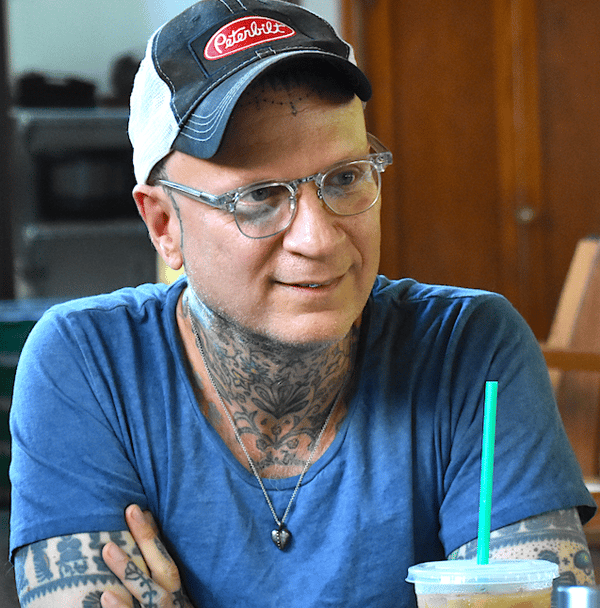Addiction. Attachment. Dharma. Recovery.
Dharmapunx NYC
josh korda
4.8 • 886 Ratings
🗓️ 15 August 2018
⏱️ 66 minutes
🧾️ Download transcript
Summary
Transcript
Click on a timestamp to play from that location
| 0:00.0 | Hello, thanks for listening to this Darma podcast. I hope you consider that in accordance |
| 0:05.3 | with the Buddhist tradition all of my work as a teacher is offered without charge and |
| 0:09.7 | supported entirely by donations only. If you'd like to support this work, you'll find a paypal button on darmopunks NYC.com. |
| 0:17.0 | On our website, you'll find resources in a free sample from my wisdom publications book Unsubscribed which is available at |
| 0:24.8 | bookstores and online retail outlets. Thanks for listening. |
| 0:28.6 | Let's start from the beginning. We are, as I pretty much begin every talk, reminding us that we are a social species. |
| 0:40.0 | We're born with an innate cycle biological drive to connect because that's in our species what allows us to survive. |
| 0:49.0 | Other species survives because physiological capabilities running, flying, swimming, |
| 0:56.8 | fighting, burrowing. |
| 0:59.0 | But for us, what gave our species its durability is simply our ability to bond into small |
| 1:08.0 | collectives where we one take care of each other for security and two we help each other maintain |
| 1:16.8 | psychological well-being. Human beings do not on their own achieve psychological regulation, emotion regulation, without the support |
| 1:30.4 | of others. We need both what's called co-regulation, the ability to connect with others |
| 1:36.1 | to express what's going on and to have that person through their presence, through mirroring facial expressions and their body language |
| 1:47.0 | and their tone of voice, we limbically begin to essentially match each other's state of being. |
| 1:54.0 | So if I'm upset and I come to you and I said something really |
| 1:58.0 | fucked up happened to me and you listen and in being with you I start to match, mirror your emotional state. |
| 2:10.0 | That's how I process, loneliness, fear, anxiety, grief, and so forth. |
| 2:18.0 | We also need to develop auto-regulation tools, which are the way we regulate strong emotions when there's nobody around. |
| 2:26.0 | But those skills come after we develop the ability to co-regulate and nobody can process emotions without having that ability to bond and |
| 2:37.8 | connect with others. |
| 2:39.9 | The key is it starts very early and it's in fact the most dominant proposition in the |
... |
Please login to see the full transcript.
Disclaimer: The podcast and artwork embedded on this page are from josh korda, and are the property of its owner and not affiliated with or endorsed by Tapesearch.
Generated transcripts are the property of josh korda and are distributed freely under the Fair Use doctrine. Transcripts generated by Tapesearch are not guaranteed to be accurate.
Copyright © Tapesearch 2025.

